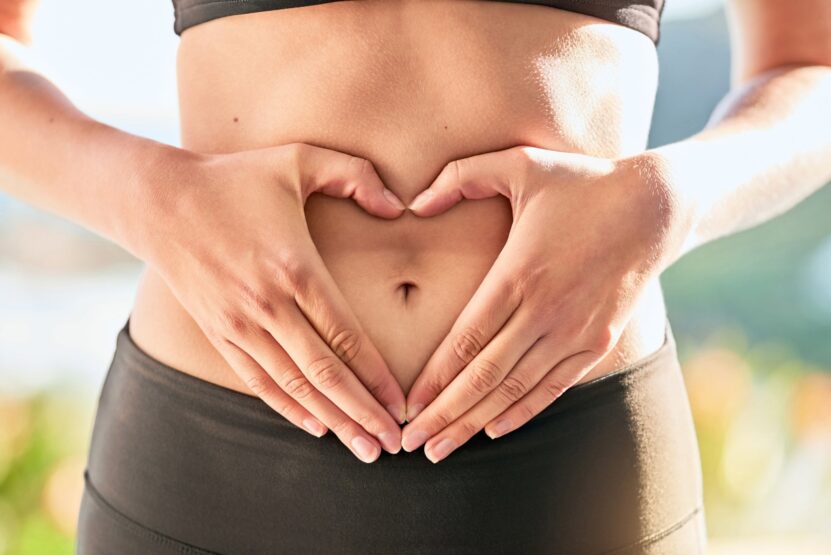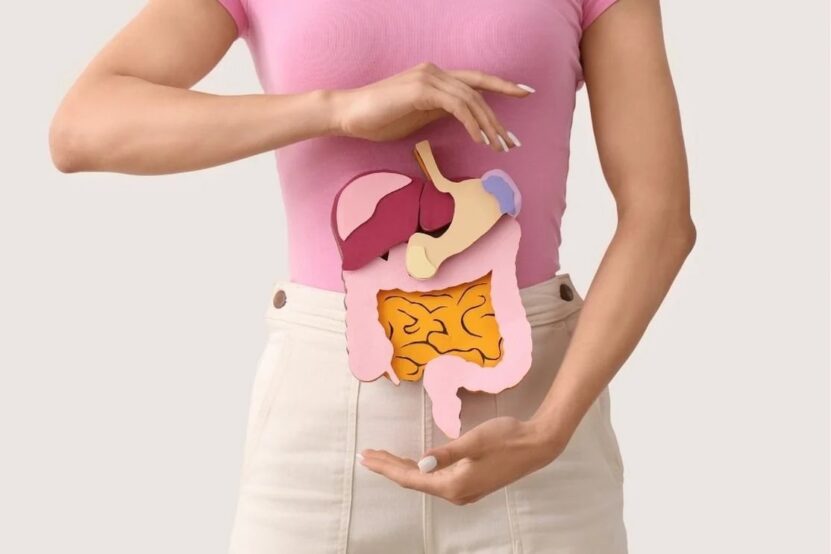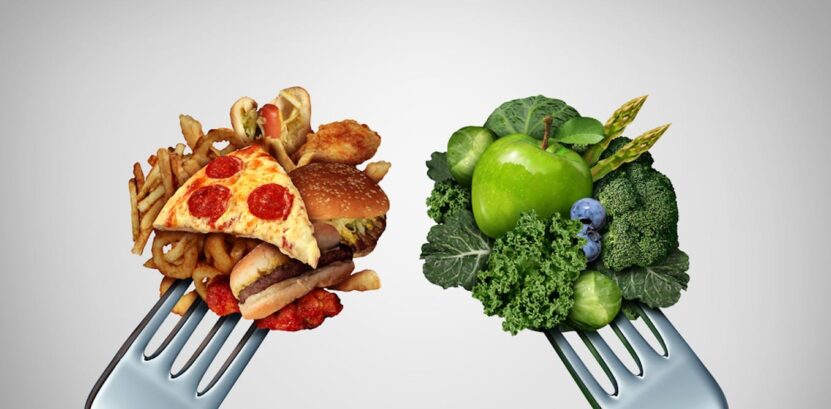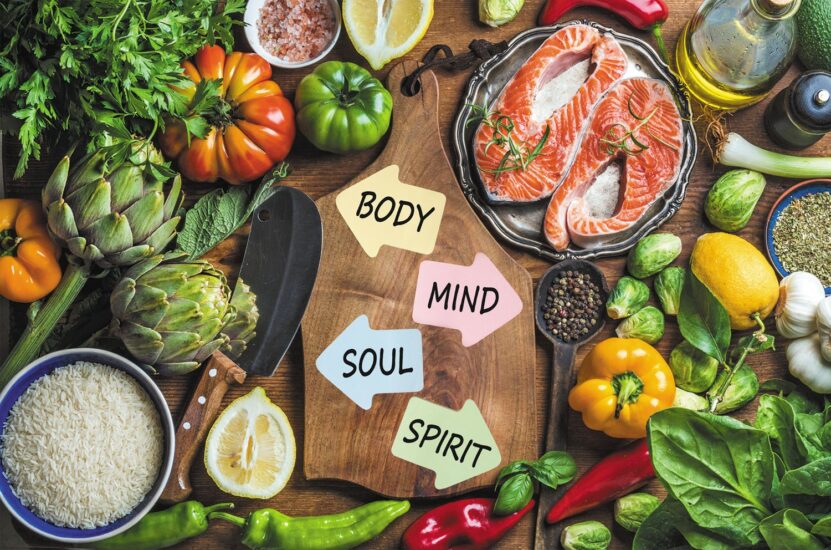Key Points
- Your gut and brain are in constant conversation through the gut-brain axis.
- What you eat influences your digestion and how you feel emotionally.
- Small dietary shifts—like fiber intake or hydration—can boost mental clarity.
- Travel, stress, and modern snacking disrupt digestive rhythms more than we realize.
- Supporting digestive regularity is key to emotional resilience.
- Culture, routine, and even posture impact how your body processes food.
Why Mood and Digestion Are More Connected Than You Think

You don’t need to be a nutritionist to recognize the gut punch of bad news—or that “nervous stomach” feeling before a big presentation. But it turns out the connection between your emotions and your digestion runs much deeper than butterflies in your belly.
There’s a literal line of communication between your brain and gut: the gut-brain axis. This involves the vagus nerve, neurotransmitters like serotonin (up to 95% of which are made in your gut), and a network of microbes that send signals to your brain every second. What you eat directly affects how these systems function—and how you think, sleep, and feel.
The next time you feel foggy, bloated, or unusually irritable, it might be less about your mindset and more about your last three meals.
Fiber, Microbes, and a Regular Routine
Let’s get specific: one of the most underestimated players in your emotional and digestive wellbeing is dietary fiber. Fiber feeds the beneficial bacteria in your gut, which in turn produce short-chain fatty acids that support everything from your immune function to mental balance.
This is why people looking to support digestive regularity often turn to natural digestive blends – not as a trendy detox, but to help establish consistent bowel habits that leave them feeling lighter and clearer both mentally and physically. Regular elimination isn’t just about comfort—it’s foundational to hormone clearance, mood regulation, and inflammation control.
Try this: Add 1 cup of legumes or 1 tablespoon of chia seeds to your daily meals. Within days, your body begins to recalibrate—often improving mood swings and sleep patterns alongside digestion.
Stress: The Silent Disruptor of Your Digestive Tract

Stress doesn’t just “get in your head.” It parks itself in your digestive system.
Your body wasn’t designed to digest food under pressure. When you’re anxious—whether from work, relationships, or global news cycles—your sympathetic nervous system (the “fight or flight” mode) diverts resources away from your gut. That means less stomach acid, slowed motility, and imbalanced gut bacteria.
Over time, this can show up as:
- Indigestion or acid reflux
- Bloating that worsens after meals
- Constipation alternating with urgency
- Cravings for sugar or comfort carbs during emotional lows
You can eat the perfect salad, but if you scarf it down in your car while doom-scrolling, your body won’t process it effectively.
Tip: Build a ritual around meals—even if it’s just sitting at a table for 10 minutes without screens. Chew slowly. Breathe. It’s old-school, but your gut notices.
The Travel Effect: How Jet Lag and Snacks Sabotage Digestion

Ever noticed how your stomach reacts when you’re far from home?
Maybe it’s that red-eye flight with too many coffees, the irresistible pastries from a hotel breakfast bar, or eating spicy street food at midnight in a new city. The combination of time zone changes, unfamiliar foods, and irregular sleep throws your gut microbiome into chaos.
Even short weekend trips can:
- Disrupt circadian rhythms that regulate digestion
- Reduce the diversity of beneficial gut bacteria
- Trigger bloating, gas, or sluggishness from excess refined carbs
- Increase cortisol levels, which slow digestion
Simple fixes that help:
- Pack your own high-fiber snacks (roasted chickpeas, dried fruit, or nuts).
- Stay hydrated—especially on flights.
- Walk after meals to support peristalsis and relieve bloating.
If you’re exploring the world, your digestion shouldn’t feel like the price of the ticket.
Global Eating Habits and What They Teach Us About Gut Health

What’s interesting is that people in different parts of the world don’t just eat different foods—they eat with different rhythms, mindsets, and values.
- In Japan, meals are structured with fermented foods like miso and natto, which naturally support gut bacteria.
- In the Mediterranean, long, leisurely lunches encourage thorough chewing and better digestion.
- In Ethiopia, injera (a fermented flatbread) introduces natural probiotics into everyday meals.
These cultural norms reinforce one core principle: digestion improves when meals are diverse, consistent, and mindful. The Western habit of rushed, snack-heavy, desk-side eating creates not only indigestion but emotional burnout.
If you’re overwhelmed by health advice, start here: three sit-down meals a day, minimal ultra-processed snacks, and some fermented food a few times per week.
How Your Gut Affects Your Brain—And Vice Versa
It’s not just that poor digestion makes you cranky. It’s that your gut microbiome literally influences your brain chemistry.
Certain bacteria produce gamma-aminobutyric acid (GABA), which calms the nervous system. Others help synthesize dopamine and serotonin—key neurotransmitters for feeling motivated, content, or emotionally stable.
So if your gut is out of balance, you might feel:
- Anxious without a clear reason
- Low on motivation or “blah” about things you used to enjoy
- Easily overwhelmed by noise or light
- Distracted or forgetful in everyday tasks
On the flip side, stabilizing your gut environment can improve mental clarity and resilience.
Smart additions to your routine:
- Eat fermented foods (yogurt, kimchi, kefir) 3–4 times weekly
- Use polyphenol-rich foods like blueberries, green tea, or cocoa to feed good bacteria
- Prioritize sleep, since microbiota shift during the night based on your circadian clock
When Emotions Manifest in the Gut

If you’ve ever had a pit in your stomach during grief, or lost your appetite during heartbreak, you’ve experienced somatic emotion.
The enteric nervous system—the “second brain” in your gut—interprets emotional cues and responds in kind. That’s why chronic stress can feel like IBS or why social anxiety might trigger sudden bathroom trips.
These reactions are real, not imagined. And the more we ignore or numb them with quick fixes (coffee, wine, sugar, screens), the more dysregulated the gut becomes.
Food Swaps That Make a Noticeable Difference
You don’t need a radical diet overhaul to see improvements. Even a few consistent changes can shift your baseline.
Try these smart swaps:
| Instead of… | Try this… | Why it helps |
|---|---|---|
| White bread with jam | Whole-grain toast with almond butter | More fiber + healthy fats = steadier energy |
| Afternoon energy drink | Green tea or lemon water | Fewer stimulants; hydrates digestion |
| Sweetened yogurt | Plain yogurt + berries | Supports gut bacteria without sugar spike |
| Late-night chips | Banana with peanut butter | Calms digestion and supports serotonin |
Final Thoughts: Start Where You Are
If this sounds like a lot, take a breath.
You don’t need to overhaul your life to feel better. Your gut and mood respond to small, steady shifts more than any crash diet or cleanse ever could.
Begin with one goal: support digestive regularity. It’s not just about going to the bathroom more predictably—it’s about creating a stable internal rhythm that lets your mind relax and your body thrive.
You’ll be amazed at what clears up—physically and emotionally—when your gut feels grounded.
Frequently Asked Questions
- How long does it take for dietary changes to improve digestion?
Most people feel a difference in bloating or regularity within 3–5 days of increasing fiber, water, and fermented foods. - Can gut health affect how I sleep?
Yes. A disrupted microbiome can interfere with melatonin production and circadian signaling, making it harder to fall or stay asleep. - Are probiotics necessary if I eat fermented foods?
Not always. Whole-food sources like sauerkraut or kefir often deliver enough diversity for most people, unless medically advised otherwise. - Why do I feel bloated even when eating healthy?
Sometimes too much raw food, fiber overload, or eating too quickly can cause bloating—even with healthy choices. - Can emotional trauma show up in digestion years later?
Yes. The gut holds somatic memory, and trauma can affect nervous system patterns, digestion, and microbiome balance long-term.

